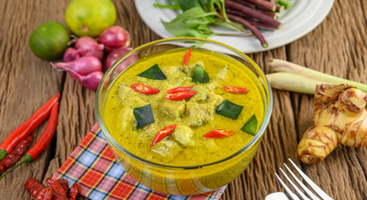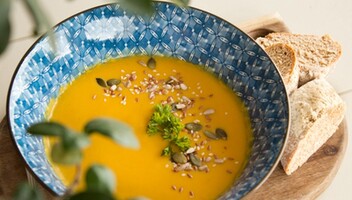
Effective Ayurvedic Perspective on Coffee
As more and more people start becoming conscious about their health, there is a controversy around what should be eaten and what should be avoided. Coffee is no exception to this rule. There is contradicting opinion on coffee that can be seen floating around online in various circles. Some who say it’s bad, whereas there are some who can’t stop raving about its merits.
However, what does Ayurveda have to say about this long-enjoyed beverage?
Ayurveda is typically of the notion that every food in nature has something or the other to offer us. No food in itself is overtly good or bad for the mind and body. So as taste is at the center of Ayurveda’s perspective on food, coffer due to its bitter taste can be recommended for its cooling and light effect on the body.
However, there are certain rules that need to be followed by indulging in Coffee as per Ayurveda. According to Ayurveda, if your body is already light and cool, then indulging in coffee can be detrimental, especially for folks who are predominantly vata doshic.
The stimulating nature of coffee can aggravate an already existing vata imbalance and result in issues such as insomnia, memory loss, exhaustion, or the inability to calm down. At the same time, if warm lubricating oil like ghee is added to coffee, it can go a long way in pacifying the cold and dry conditions associated with an aggravated Vata.
So, it isn’t consuming coffee that is the problem, but how you consume it that ultimately defines whether you will benefit from it or not.
To Understand this Better here are a set of rules that lay out how coffee needs to be consumed according to Ayurveda.
1 – Recognise Your Dosha First
Being aware of your mind-body dosha type can help you determine how you should have your coffee, or whether you should have it in the first place. Coffee can be a balancing concoction for people of kapha contitutions. Coffee’s hot, stimulating nature can balance the kapha’s wet and sluggish nature.
On the other hand, people with excess pitta and vata should be very careful. People with high pitta who are already overheating will only experience aggravated heat with coffee.
You can use our questionnaire to find out what type of mind-body dosha you are.
People with excess vata and pitta should normally refrain from indulging in coffee as it can only make your excess dosha symptoms much worse. Here are a few rules you can follow
- If you are not experiencing symptoms of excess vata like insomnia, dry skin or dehydration then try taking your coffee with cream and natural sweetener. This will provide your system with the nourishment it needs.
- Pitta doshic constituents should skip the cream but nevertheless sweeten their drink with either maple syrup or organic sugar.
- Kapha doshic constituents should have their coffee black without sugar or cream. Milk and sugar can create congestion in folks with high pitta.
Also try to have your coffee early in the morning before 10:00 am. According to Ayurveda, the best time to have coffee is between 6 am to 10 am when the kapha in our body makes us feel sluggish.
Try not to have more than one cup of coffee per day. Ayurveda is strictly against gulping down multiple cups of coffee in a single day, which is unfortunately the case with many who love this beverage. Try to have coffee in moderation.
So with that out of the way, let’s look at the different recipes in which you can make an Ayurvedic cup of coffee at home.
Method 1
Ingredients
- 8 ounces of hot black coffee
- 2 ounces of full-fat cream or Coconut milk (not recommended for Kapha constituents)
- 2 tsps. of organic ghee or coconut oil
- ¼ tsps. Of ground cardamom, cinnamon, and turmeric
Pour all of the above ingredients into a blender, and let it blend for about 20 seconds. Serve yourself a cup once done. This cup is best enjoyed outdoors.
Serving Size – 1 cup
Method 2
Ingredients
- 1 cup hot water
- 2 tsps. of coffee powder
- 2 tsps. of full-fat organic cream or coconut milk. Try almond milk if kapha dosha type.
- 1 tsps. organic ghee or coconut oil
- 1 tsps. maple syrup, stevia, or coconut nectar
- ¼ tsps. Ground ginger or cardamom (use if pitta dosha type)
Put the water on the stove and bring it to a boil. Once the water starts boiling, pour it in your cup with the remaining ingredients. Your coffee is ready
Serving Size – 1 cup
The above two are just the tip of the iceberg when it comes to experimenting with coffee blend as per Ayurveda. There are a plethora of other combinations you can try to make your coffee refreshingly delicious while staying healthy.
The Benefits of Coffee
Coffee serves many health benefits apart from keeping you awake and productive for a long day ahead. Some of its benefits are as follows:
- Coffee is considered to be a powerhouse of polyphenols, a compound that exhibits substantial anti-oxidant activity. As such it is extremely beneficial in flushing out damage causing free-radicals from the body.
- Chlorogenic Acid or CGA is considered to be the abundant source of polyphenols in a coffee bean. CGA is rich in both anti-inflammatory and antioxidant properties and can be deemed as a leading reason behind many of the health benefits obtained by coffee drinkers worldwide.
- Coffee is known to improve memory and learning by boosting brain function
- It can decrease the risk of type-2 diabetes
- It can diminish the risk of dementia or Parkinson’s disease
- It can help relieve depression
- It can lower the risk of rectal and liver cancer.
Advantages of Coffee
Coffee is the most widely consumed beverage around the world. Many credit it for being the primary reason behind their productivity. Although true, coffee does have some risks associated with it that should not be ignored.
If Ayurveda is followed, coffee can be consumed properly if you know your mind-body dosha type. Being aware of your dosha constitution allows you to enjoy coffee with all of its health benefits. To know more about coffee, you can consult an expert Ayurvedic practitioner today.
Note: The information in this article is intended for your educational use only and is not a substitute for professional medical advice, diagnosis, or treatment. Always seek the advice of your physician or other qualified health providers with any questions you may have regarding a medical condition and before undertaking any diet, supplement, fitness, or other health programs.






